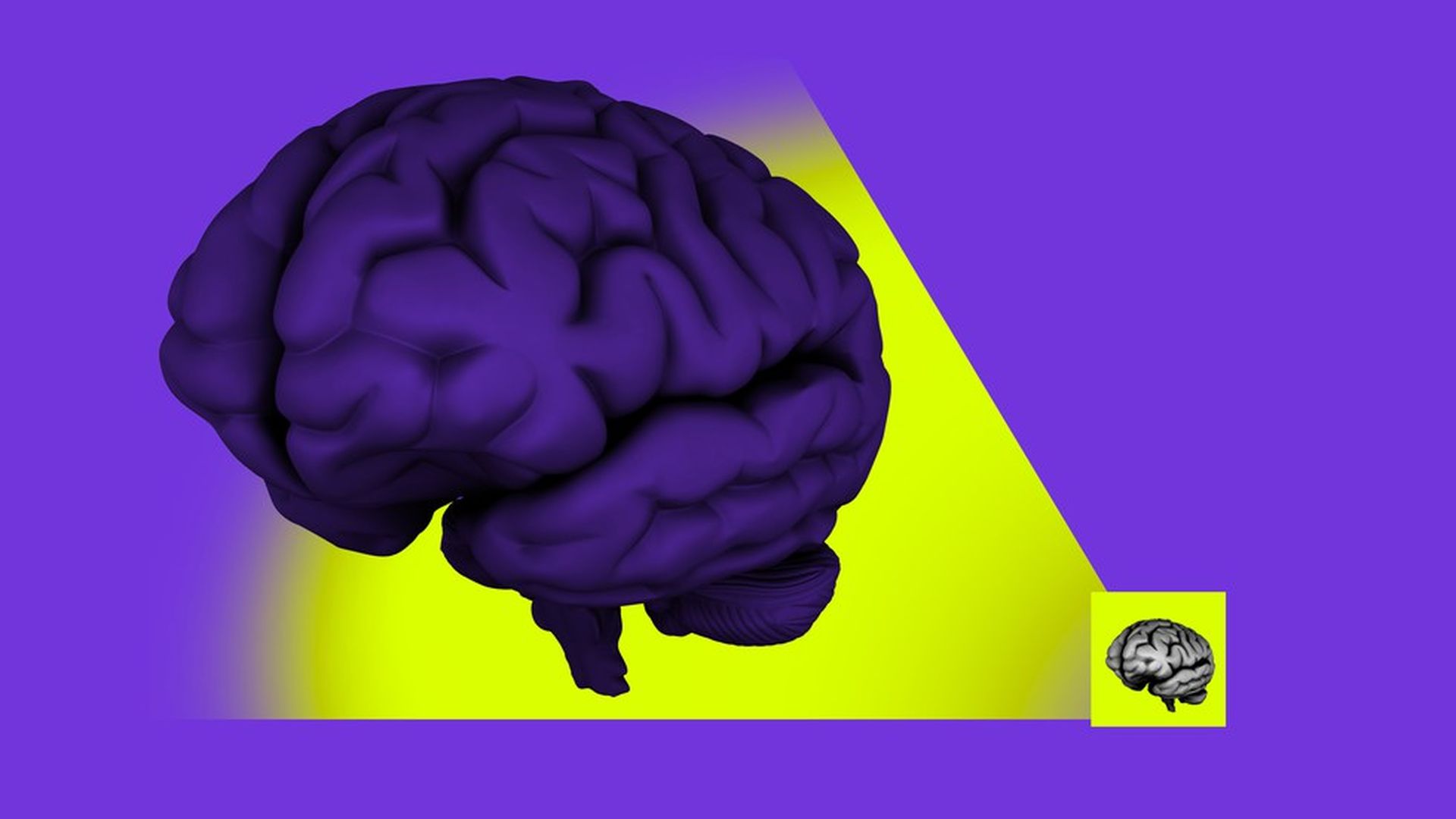Robots overhyped, overfeared
Add Axios as your preferred source to
see more of our stories on Google.

Lazaro Gamio / Axios
We are in a robot-and-artificial intelligence bubble, and experts are starting to push back. Among their gripes: over-the-top hype of AI's capabilities, and its near-term danger to society.
One of those grumbling is Rodney Brooks, a father of modern robotics. He tells Axios that we are not near an age of super-human machines — robots are here, but not about to take over. Neither are we on the verge of truly autonomous cars in which we never touch the wheel:
- "AI is not inherently powerful. In hundreds of years, it could be different. But we aren't on the cusp of this."
- Some companies are exaggerating their AI capability. "AI washing is very, very prevalent," Brooks says, forecasting "some disappointments ahead — a bubble that bursts."
- Self-driving cars will "operate [only] in certain lanes at certain times. In 20 to 30 years, there will still be human drivers."
In a long post in the latest Harvard Business Review, MIT's Erik Brynjolffsen and Andrew McAfee write of entrepreneurs who sprinkle "references to machine learning, neural nets, and other forms of the [AI] technology" into business plans, "with little connection to its real capabilities." "Simply calling a dating site 'AI-powered' ... doesn't make it any more effective, but it might help with fundraising," they write.
You could say the same for the hype around self-driving cars. From what we hear from Silicon Valley, Wall Street and many journalists, you'd be forgiven for thinking we are just a couple of years — perhaps at most five — from autonomous cars wheeling wherever we please. Not sort of self-driving under certain conditions, but all the time, whatever the conditions.
The truth, however, is that we're not: So-called Level 5 autonomous cars — those in which we ride heedlessly in the back seat with a cup of coffee from home, along the freeway, through the city to the parking garage under our office building, and then back home — are likely not to be with us until the 2030s at the earliest. There is precisely one Level 3 car on the road — the Audi A8, which has highly limited autonomy — with everyone else, including Tesla, at 2 or 1. "As much as people think that autonomy is just around the corner, we couldn't be further from the truth," said Austin Russell, the CEO of Luminar, which produces Lidar sensing technology for self-driving vehicles. Big breakthroughs in current hardware are needed to reach Level 5, Russell told Axios. "With existing hardware, it's questionable we'd ever get there," he said.
So why is everybody getting the new technology so wrong? Part of it is the psychology of business manias, which goes back to the 17th century Tulip Craze, and probably before, in which people simply want to believe that money grows on trees, and that value goes up and never down.
In the current age, though, there is something more, says Brooks. "People get spoiled by Moore's Law," he said, referring to the rule-of-thumb that's prevailed since the 1960s. Since the performance of silicon chips has doubled every 18 months or so since then, as Moore's declares, people wrongly expect all tech to advance at that pace.
Where we really are now: In terms of commercial products, we are in a period of simple robots doing the simplest of tasks again and again, mainly because no one has yet invented one that reliably does something more complicated that people or businesses want. We are talking machines like the Roomba, the robot vacuum cleaner of which Brooks is a co-inventor. "Customers want something that out of the box will just work, at a price they want to pay," he says. "And they don't want to read a manual."
Where we're going: The greatest near-term need is robots that will help the elderly stay in their homes and not have to go to a nursing facility, he says: "We will be lucky if we have enough robots to fill the gaps needed for the aging population. They will be dumb robots."
Brooks closed our chat with these wise words: "In three to five years, the press will be saying, 'What happened to AI? You promised.' But I didn't promise. You were promised by people who didn't know what they were talking about."
